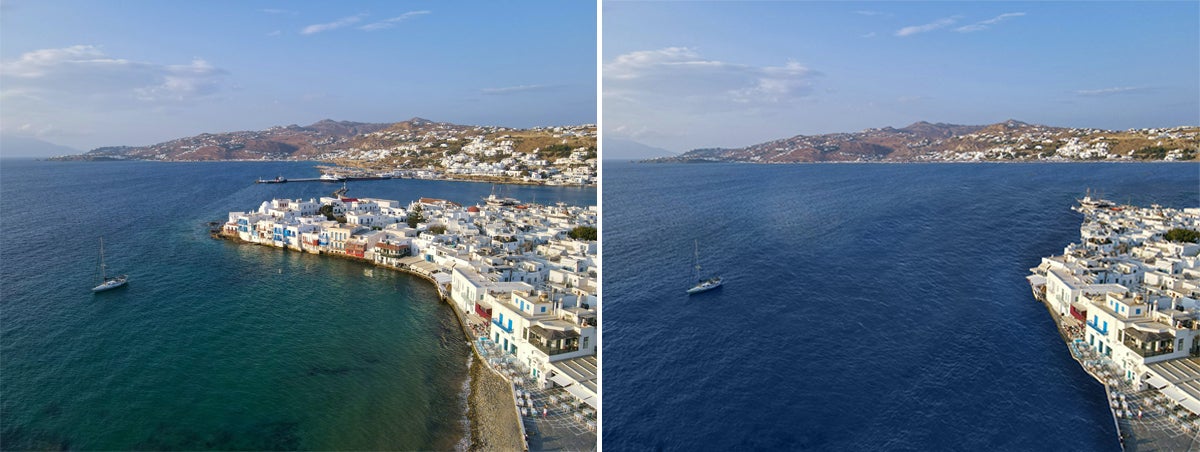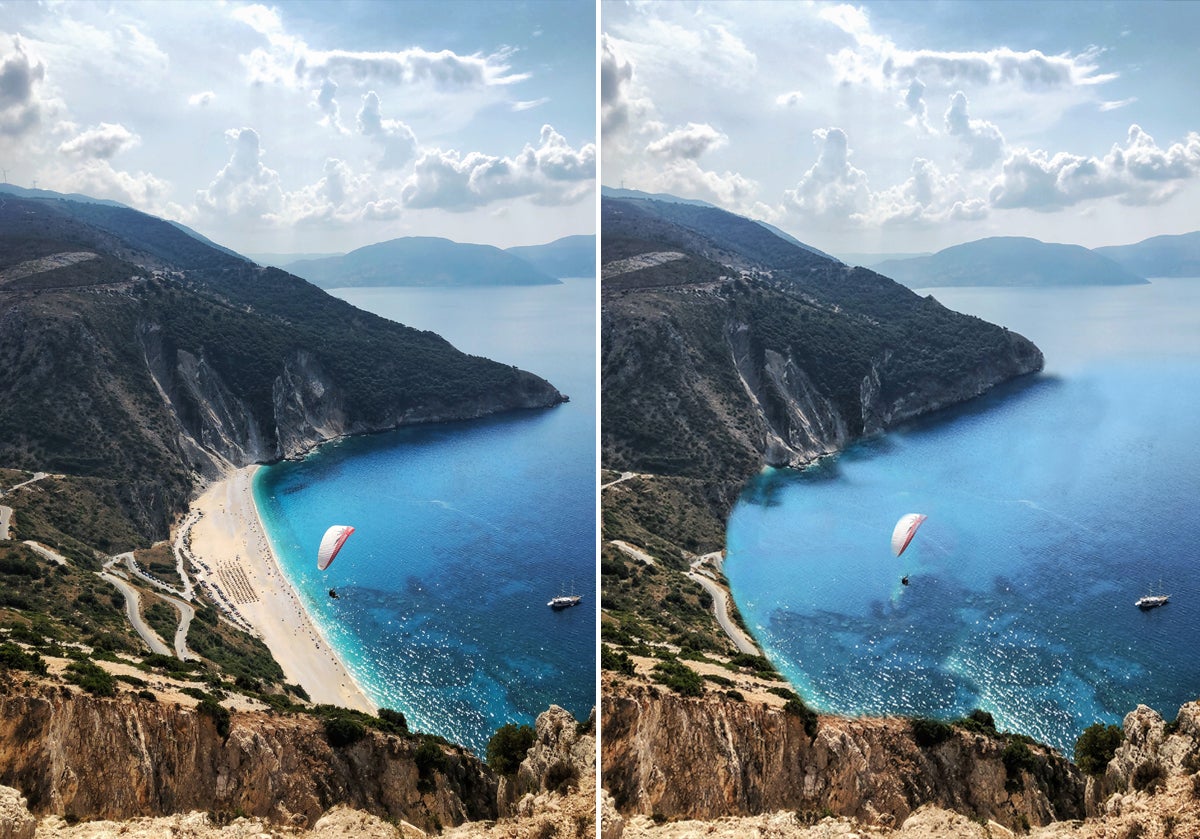
Images have shown how Greece’s coastline could look dramatically different by the end of the century, with huge chunks of land and rows of buildings lost to the sea due to erosion.
Beaches and lighthouses may no longer exist in popular holiday spots by 2100, according to the the pictures.
The climate crisis is speeding up the rate of coastal erosion across the world, as global warming drives rising sea levels and increases the frequency of storms.

The sea whittles away the land and pushes back coastline during the process, sometimes taking buildings and other structures with it.
New images have shown what the most at-risk areas in Greece look like at the moment - and how they may change by the end of the century.

Myrtos Beach in Kefalonia may no longer exist, with as much as 300 metres of coastal erosion forecast - which is nearly the height of The Shard in London.
By the same time, the Old Venetian port of Chania in Crete may lose its landmark of the Egyptian Lighthouse, according to research conducted a travel company.
The images - created by Unforgettable Greece - show how cliffs at Santorini may look after 150 metres of land falls into the sea, with white-washed houses pushed closer to the edge.
Rows of houses at the port in the city of Naxos, on the island of the same name, could also disappear, as more than 180 metres of coastal erosion is predicted by 2100, according to the travel company.

The European Space Agency last year looked at how the Greek coastline has changed since the 1990s using satellite images, finding nearly 10 per cent of the 900 kilometres of land studied had been pushed back more than three metres every year.
“The results highlight the fragility of Greece’s coastline and indicate the likelihood of coastal erosion increasing in the coming years,” the organisation said.

.jpg?w=600)





